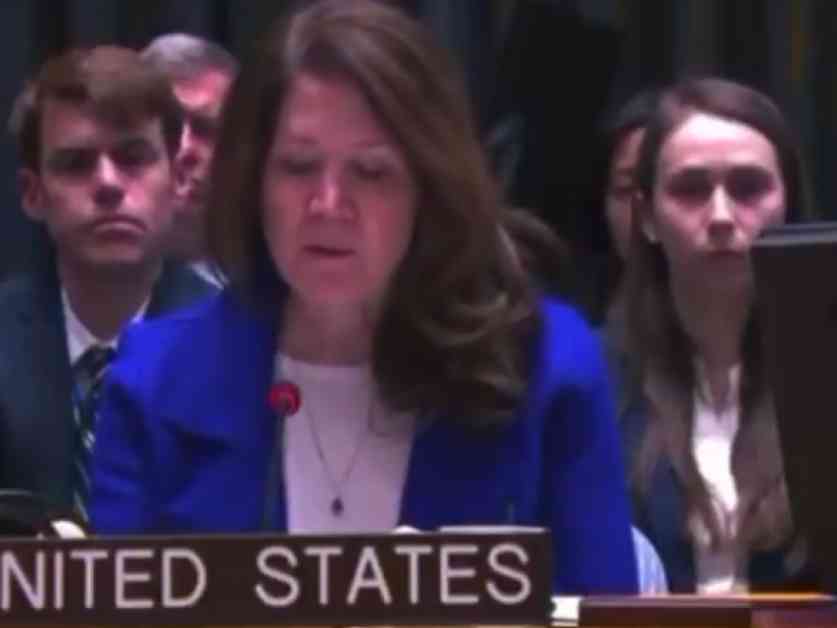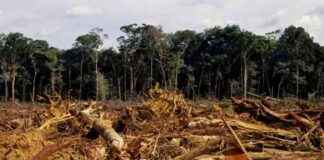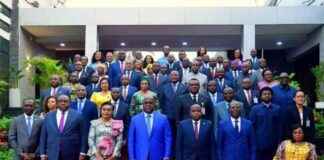The United States Urges Immediate Halt to Mineral Purchase from M23-controlled Areas
As the security and human rights situation in the Democratic Republic of Congo (DRC) continues to deteriorate due to the resurgence of the M23 rebellion supported by Rwanda, the United States of America has expressed concern over the worsening illicit exploitation of the natural resources of the DRC. Addressing the UN Security Council on Wednesday, February 19, Dorothy Camille Shea, the Deputy representative of the United States to the United Nations, called for the “immediate” end to minerals sourced from areas under the control of the M23 rebellion supported by Rwanda. Shea emphasized that this conflict has exacerbated trafficking operations in the eastern DRC, particularly in the mineral sector, with many minerals being smuggled internationally through neighboring countries. Urging an immediate halt to mineral purchases in the M23-controlled areas, Shea highlighted the regions identified by the DRC government as “red zones.”
Precautionary Measures by the DRC Government
Prior to this warning from the U.S. administration, the DRC government, through the Ministry of Mines, had implemented a series of measures against minerals sourced from areas under M23 control supported by Rwanda. In a joint briefing with the Minister of Communication and Media, Mines Minister Kizito Pakabombe discussed an order signed on February 12, 2025, classifying certain mining sites in the Masisi territory in North Kivu and the Kalehe territory in South Kivu as “Red” status. The decision to reconsider the status of these mining sites was based on two main observations: the illicit exploitation and trade of minerals organized by aggressors, which establish an illegal supply chain, and the fact that these illegal supply chains are the main source of funding for this war of aggression and occupation.
According to the rationale presented in the decision, the aggression against the DRC initiated in 2021 by a member state of the International Conference on the Great Lakes Region (CIRGL) has had detrimental effects on economic activities. The report of the United Nations Group of Experts for the DRC, published on December 27, 2024, revealed logistical and troop support from the national army of a CIRGL member state to negative forces operating in the eastern part of the national territory, particularly in several mining sites, including those mentioned above. The Mines Minister justified the reconsideration of the statuses of these mining sites based on two observations. The first is that the illicit exploitation and trade of minerals organized by aggressors (negative forces and the national army of a CIRGL member state) establish an illegal supply chain, in violation of the legal and regulatory framework of the DRC, the principles of the CIRGL’s Regional Certification Mechanism (RCM) Manual, and the OECD Due Diligence Guidance for Responsible Supply Chains of Minerals from Conflict-Affected and High-Risk Areas.
Concerns Raised by MONUSCO Chief Bintou Keita
During her quarterly address to the UN Security Council in late 2024, MONUSCO Chief Bintou Keita expressed deep concerns about the administrative control consolidation of the M23 in the Masisi and Rutshuru territories in North Kivu. This control has allowed the rebel group to establish a monopoly on coltan production, a crucial mineral for the global technological industry. Keita noted that trade from the Rubaya region, representing over 15% of global tantalum production, generates approximately $300,000 per month for the M23. Alongside these revelations, Madame Bintou Keita emphasized the importance of enhancing governance of natural resource exploitation in the DRC. She encouraged the government to improve transparency and traceability of mining flows, invest in local raw material processing, and take concrete actions against illicit financial flows.
In conclusion, the United States, the DRC government, and international partners continue to address the challenges posed by the illicit exploitation of natural resources in the DRC. The call for an immediate halt to mineral purchases from M23-controlled areas underscores the importance of disrupting illegal supply chains that fund conflicts and perpetuate instability in the region. Efforts to enhance governance, transparency, and local beneficiation of raw materials are crucial steps towards sustainable development and peace in the DRC.

















